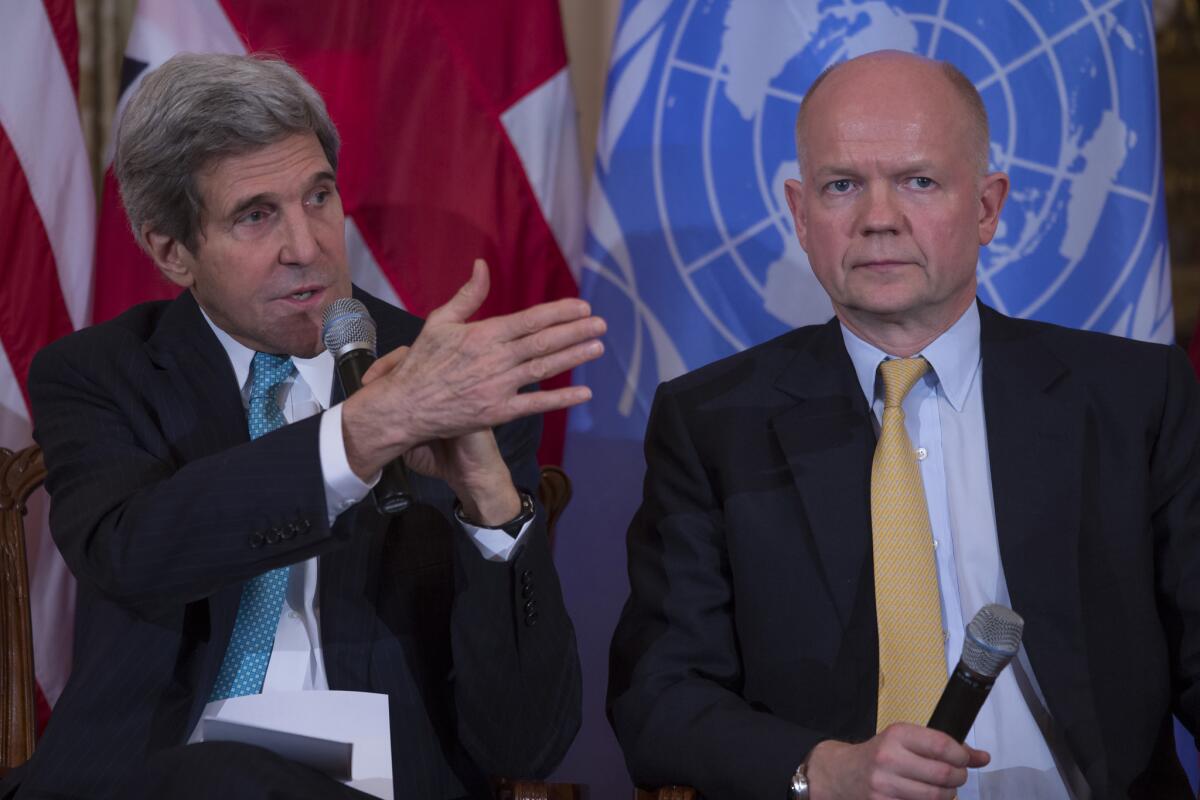U.S. vows to deny visas to those accused of wartime sexual violence

- Share via
WASHINGTON -- Secretary of State John F. Kerry announced on Tuesday a ban against issuing U.S. visas to foreigners implicated in wartime sexual violence.
“No one at the highest level of military or governance who has presided over, or engaged in, or knew of, or adopted these kinds of attacks is ever going to receive a visa to travel into the United States of America from this day forward,” Kerry said during talks with his British counterpart, William Hague.
Hague applauded the announcement.
“The shattering of impunity ... is the crucial ingredient so that people know they will not get away with it,” he said.
As president of the Group of 8 leading industrial countries last year, Hague launched the Preventing Sexual Violence in Conflict Initiative to bring more perpetrators to justice. He campaigned with actress Angelina Jolie to bring about a United Nations Security Council resolution encouraging governments to reinforce prevention measures.
Awareness of the use of sexual violence in conflicts grew after the 1990s war in the former Yugoslavia, where more than 20,000 women and girls were reportedly raped, and the Rwandan genocide, during which the figure is believed to have reached into the hundreds of thousands.
“What had been missing was some of the largest governments in the world throwing their weight against it,” Hague said.
Kerry and Hague also commented on the unrest in Ukraine. Kerry said the United States would pursue talks with Russia and other countries to press for peace in Ukraine.
“This is not a zero-sum game,” he said.
Hague, who will meet with International Monetary Fund officials during his stay in Washington to discuss financial assistance Ukraine, said it was “urgent to prepare financial support” to support democracy there, but also to “meet the necessary conditions of that financial support.“
Twitter: @lalitaclozel
More to Read
Sign up for Essential California
The most important California stories and recommendations in your inbox every morning.
You may occasionally receive promotional content from the Los Angeles Times.










